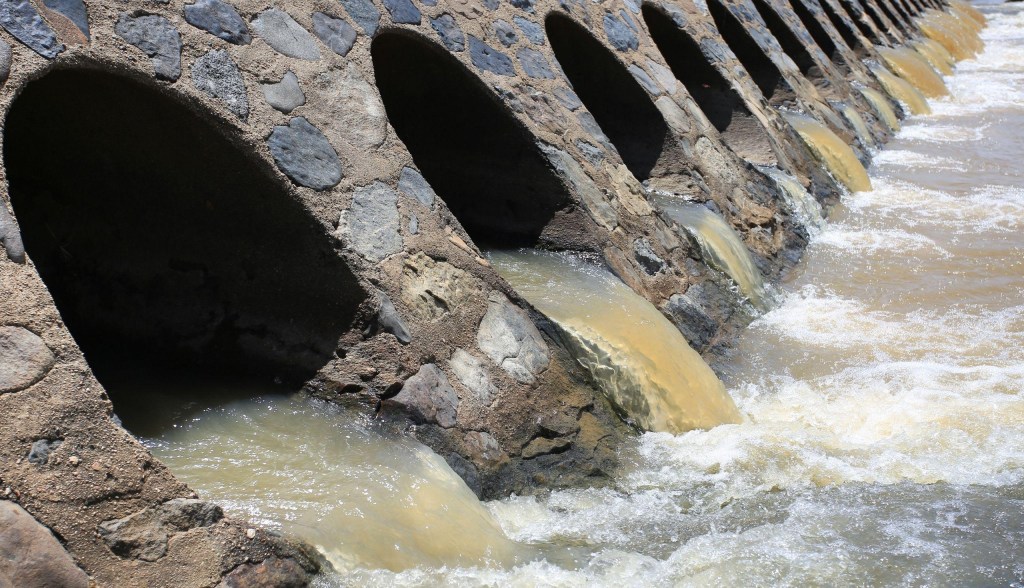
Why Does My Water Smell Like Sewage?
Summary: Get a straightforward explanation of what can cause tap water to smell like sewage, how to pinpoint whether the odor is coming from your pipes or water source, and simple steps you can take to eliminate the unpleasant smell at home or in the workplace.
There’s nothing worse than a foul odor coming from your drinking water and it’s even worse when the smell of sewage is seeping out of your faucet. The sewage smell you’re experiencing, which may also resemble the smell of dirt or rotten eggs, could be the result of a few different factors including, but not limited to, gases in your drain caused by bacteria from food and waste, or an issue with your hot water heater.
The smell of sewage in water is usually down to a buildup of bacteria found in your pipes, usually, a buildup of hydrogen sulfide due to your hot water heater either running at a low temperature or having been out of use for a period of time.
Quick facts:
- Your water smells of sewage due to bacteria in your drainpipe producing gases that arise when the faucet is turned on.
- Hydrogen sulfide is the gas most likely to cause this sewage smell. It is commonly caused by bacteria that form in your hot water heater when it is run at low temperatures or turned off for a period of time.
- Hydrogen sulfide can be smelled at levels as low as .5 parts per million. At 1 PPM it will smell musty, and at 1-2 PPMs it will smell like rotten eggs.
Hydrogen sulfide can be smelled at levels as low as .5 parts per million.
What causes the smell?
Your water may smell like sewage due to the presence of bacteria that comes from food, soap, or other materials sitting in your drain. This bacteria causes a heavy gas to fill the drain near the sink and when the water is turned on the gas is forced upwards and into the air around the sink making it seem like the water itself smells.
In some instances, the smell only occurs when using hot water. If this is the case, the smell is likely originating from bacteria growing in your hot water heater. This can happen if your hot water heater temperature is too low or if it’s turned off for long periods of time, like when you go on vacation. Fortunately, the bacteria in the hot water heater should not be harmful to you, but it will need to be eliminated in order to remove the smell from your tap water.
This sewage smell can also be the result of hydrogen sulfide. The presence of this gas can be toxic but more than likely it will be detected before reaching a toxic level. Humans can detect hydrogen sulfide at as low as .5 parts per million (PPM). Anything less than 1 PPM will have a musty smell and between 1-2 PPM will have a rotten egg smell.
What should you do?
To determine if the bad smell is coming from your pipes or from your water, fill a glass of water and walk it away from the faucet before smelling it. If it does not smell, the culprit is likely the pipes and drain. If there are bacteria inside your drain, you’ll need to disinfect the sink and pipes using a small amount of soap and a small brush to clean the pipes right inside your drain.
If your hot water heater is the issue, you can try turning your hot water heater temperature up for up to 24 hours and running the hot water taps to flush the pipes out. Remember to be very careful and proceed with caution if you decide to turn up the temperature of the hot water heater.
If you have a well as your water source, the hydrogen sulfide may be originating there. If this is the case, you may need to consider contacting your local water testing lab to have your water source tested for contaminants.
What can help reduce the smell of sewage?
The best method to remove the smell of sewage in your water as much as possible is to use shock chlorination treatments within the pipe and continue to pump out water from said pipe until the smell of chlorine has disappeared.
Guarantee that your workplace water supply is free from harmful levels of contaminants. Contact Culligan Quench, and our expert customer service agents will recommend the countertop or freestanding bottleless water dispenser to protect your office.
Get a free quote on any of Culligan Quench’s bottleless water filtration systems today!
These key takeaways break down the most common reasons behind the odor and what steps can be taken to resolve it.
- Bacterial buildup: Sewage-like odors often stem from bacteria in drainpipes or hot water heaters that produce gases that travel up through the faucet.
- Hydrogen sulfide gas:This common cause of sewage or rotten-egg smells can be detected by humans at very low levels and may indicate bacterial activity or water source issues.
- Simple troubleshooting: Filling a glass and smelling the water away from the faucet helps determine whether the problem is in the pipes or the water itself.
- Solutions vary: Cleaning drains, flushing hot water systems, or contacting a water testing lab are practical ways to address and reduce the sewage smell.
.

